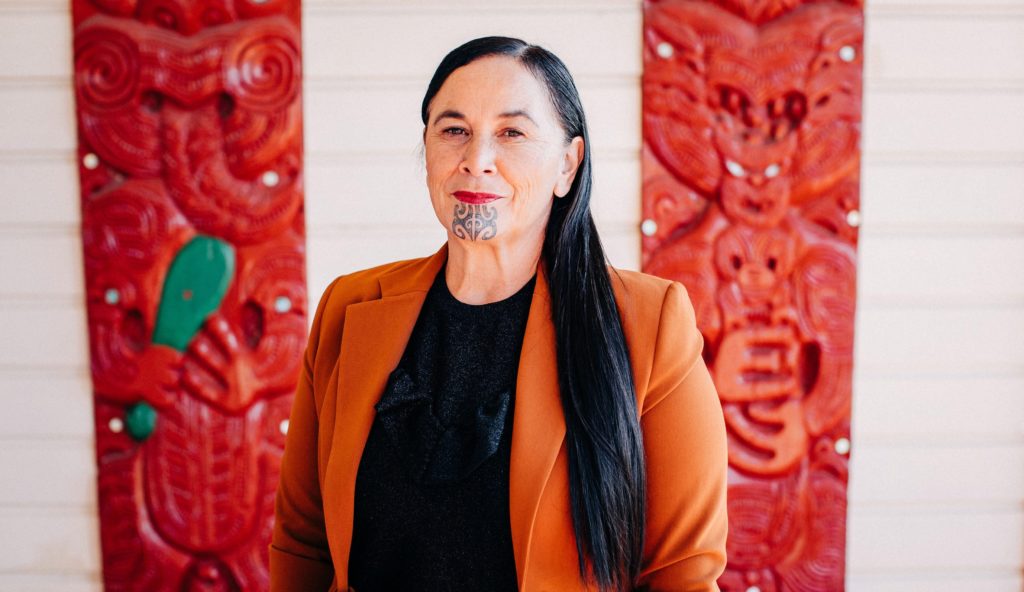If she chose to, Debbie Ngarewa-Packer could compile a CV that few could match for variety. She could list Poi E for instance, not that she’s old enough (or good enough, she says) to have been one of the pioneer performers. She’s becoming an old hand at court battles in an effort (successful so far) to protect Taranaki’s ironsands from one of the big overseas mining companies, she’s done university studies in Tasmania and California, and she’s now a co-leader, along with John Tamihere of the Māori Party. And that’s not nearly the half of it, as you can see in this chat with Dale.
Kia ora, Debbie. You’re from one of the many Taranaki families who, no doubt, still harbour bitter memories of what went on at Parihaka well over 100 years ago. There were, I understand, more than 400 of your people shipped to the South Island and imprisoned, mostly in Dunedin, for daring to try to hold on to their land.
Yes. I definitely carry a deep sadness over that. Yet I’m acutely aware of how resilient we’ve been, too. Many of my ancestors had passed away 10 years earlier when the Crown started evicting and arresting our tane in South Taranaki.
They were referred to as Pakakohi prisoners, and 74 of them were shipped to Dunedin in 1869 — to hard labour there and, in many cases, their death.
The records show that they laboured for a total of 22,447 days. They built Māori Road and significantly widened Anderson’s Bay Road in Dunedin. And, especially because so many of our koroua never returned, it’s fair to say that there’s entrenched in us a deep sense of what is right and what is wrong.
My koko, Ueroa Hohepa Ngarewa, who was born in 1901, was one of the first surviving mokopuna born after those terrible experiences down south in Otago. His father, Hohepa Ngarewa Tumahuki (known also as Hohepa Ngarewa), was one of the 16-year-olds taken down there with his dad and uncles and many of his koroua. And they perished there.
But Hohepa survived and came back up to Parihaka, which is where a lot of our whānau had gone. Then, 10 years after he’d been taken south as a prisoner, they were persecuted again for passively resisting land confiscations at Parihaka — and he was fortunate to survive that.
He married a wāhine, Apakura Pikirapu, then lost her and some of their children because of the influenza epidemic in the 1890s. They’re in a mass grave near our marae. He remarried Waitohu Rangihaeata and was gifted with three tamariki. One of them became my koro.
That’s a common sort of story for our whānau. We used to wonder why our men were so spoilt and pandered to, but it’s because we didn’t have many surviving tāne after the muru raupatu (land confiscation), the imprisonments and deaths. I often used to tease my brothers and male cousins about being mummy’s and aunties’ boys. But that was the reason.
We didn’t have many tāne within our hapū or whānau who went to war later on because many of our males were still young and absolutely protected. My father came very much from that culture.
And what can you tell us about your mum?
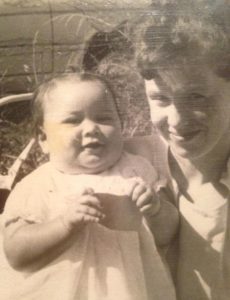
Well, my dad was Hemi Ngarewa and he met this fiery Irish redhead, Colleen Cleasby, when she was 16. She was the first non-Māori to marry into our whānau. Most of the relationships earlier were pre-arranged. But not this one. Mum married Dad and they lived in Pātea with our Koko. And she eventually became a much better reo speaker than Dad.
She had me at 17 and then my two brothers and a younger sister. We were raised in an extended whānau in Pātea. All our friends were cousins. We didn’t know anyone outside the whānau. We were a humble family, a freezing-worker family.
Being the oldest child and oldest moko to my Koko, I was sent away to boarding school. Our whānau was committed to an aggressive strategy of getting us educated. There was always a real drive to push us to better ourselves and to look to a future where we weren’t so reliant on jobs like the freezing works.
Mum started out as the cleaner for our local school, but became a teacher aide, then a trained teacher and, finally, a well-loved principal of Pātea Primary School.
It must’ve been tough when the works closed nearly 40 years ago.
Yes. That was in 1983. And our whānau, like so many others, were made redundant. They were frightening times. There was one occasion when I saw my father cry seeing all his whānau, our ringawera whānau, leaving home to find work — and not knowing how he was going to feed his family.
Generations of our family had worked together on the chain, so it was as much a whānau culture as it was a place of work. And, when the works closed, for many, that was the first time that our whānau and households had been broken up since the muru raupatu days. Many of our men then spent a few years lost in MACESS and ACCESS programmes.
Mum decided that Dad needed to go and retrain, so she sorted out his papers and got him into Teachers’ Training College in Palmerston North to train as a teacher. So he became an adult tertiary student and went from being a freezing worker to becoming a Māori teacher at Pātea High School where he was mentored by a much loved rangatira, Haami Prime.
The catalyst for that sort of commitment was our belief that we should keep striving and finding a way to improve the whānau’s wellbeing. Through all of that, my parents worked at the pā, were active in the community and looked after the aunties and uncles — who looked after us. Mum set up Pātea’s first bilingual unit there, too.
And yes, there were tough and uncertain times when the works closed, but our whānau adjusted and, as a community, we endured. Then, in our darkest time with so much going against us, our whānau created Poi E. And that was a new beginning for us.
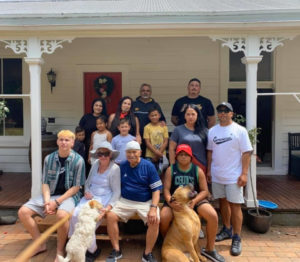
We’ll talk about Poi E in a minute. But what is your situation now?
I live in a three-generational home with my tāne, Neil Packer (who’s of Ngā Ruahine, Ngāti Kuia and Ngāti Apa), our son Pawhare, daughter Hannah, son-in-law Jordan and mokopuna Hekaiaha and River. We’re on tūpuna land that once was confiscated. We have chooks and sheep and an orchard. It’s a simple life — and it’s a full house with lots of love and lots of looking after each other.
Let’s focus on your mum for a moment or two. I’ve got some Irish whakapapa as well, so I have an extra bit of interest in her. She sounds like an amazing person, and I get the impression that you have a good share of her feistiness. But how did she come to be in Taranaki? And then be the first Pākehā to join your whānau?
Mum’s parents had come over from Ireland and they farmed at Paeroa as well as doing some goldmining up that way. Mum’s mother had five daughters, but that marriage ended and, eventually, she left with her new partner and daughters and moved to Manaia, not far from Hāwera and up the coast from Pātea.
Mum, who’s an extremely intelligent woman, always had an affinity for Māori, and must’ve taken a shine to Dad who, so we understand, made a big impression on her as dancer — not that us kids ever saw much evidence of those dancing skills.
Mum helped raise her sisters and was extremely protective of them. But never really took to her stepdad and eventually left Hawera High to start nursing. She was always a battler for what’s right — and she taught us, no matter what, to fight for those “being treated wrong”, to fight for equity and fairness.
She pushed bilingual teaching way before its time. She rejected the stereotypical labels that were put on our community and kids. And she taught us to commit to a kaupapa bigger than ourselves.
So we learned to be activists and to take pressure at a very young age. She once sat with Eva Rickard on a long bus trip and that began a long friendship. Mum had, and still has, this capacity for embracing new ideas and enriching the community with them.
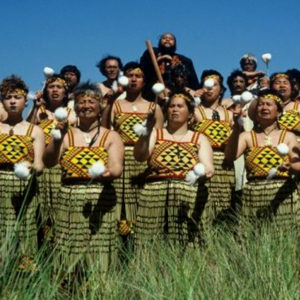
Now let’s turn to Pātea’s pride and joy. To that wonderful waiata, Poi E. Did you have a part to play in that production?
Oh, heck no. Poi E came out in my sixth form year when I was a boarder at New Plymouth Girls’ High. The Pātea Māori Club had lots of my aunties, like Patricia Ngarewa who’d married Dad’s older brother, Pawhare, a founder of the club. So it was all my aunties, uncles and cousins. And there was Ngoi Pewhairangi, from the East Coast, and Dalvanius — they were the two who composed the song.
When the works closed, some of the whānau had been forced to move over to Waipukurau and Kahungunu territory. But the Pātea Māori Club and Poi E brought everyone back home. It became a reason for our whānau getting together.
They’d all come back after work on Friday for the weekend, be at the pā, and we’d all be home. You’d see aunties and uncles you hadn’t seen for a week or a month. And they’d bring things back, like boxes of fruit from Hawke’s Bay where they’d been working. It was awesome, because I guess we saw that, no matter where we went to work or lived, we were still us.
I’d never make the A-team. They were way too talented for me. Even now, I’m only in the third row if we do it at the pā. I might get kaumātua front-row status one day, but not yet.
But here was our Pātea community split to pieces yet still showing that we could survive and stay connected to the marae and to one another. And that connection wasn’t easy because we had no internet and not everyone had a landline.
We’d been written off. The banks had left Hāwera and Pātea. Businesses had closed down. People had sold up. We showed, though, that we could still endure. And, through all that adversity, our whānau pulled together and came up with an international hit.
As you know, that wasn’t the first major challenge for us as a Māori community. We’d risen from the muru raupatu experience. Risen from the influenza epidemic after World War One. And here we were rising from the freezing works closure. Not just surviving but rising. I am so proud of my whānau and community. And they inspire me to this day.
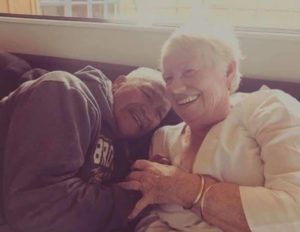
Has there been something special in the community’s ability to bounce back?
I think the critical lever has been our commitment to education and our whānau connection. I come from Pariroa Pā and we have an amazing collection of teachers, principals, managers and kapa haka tutors.
In my school days, it was the whānau pooling their scarce money to get me and others off to boarding school. And when you have that sort of support you feel accountable to your people.
But I found it hard being away from home. I was devastated. I’d never been away from my Koko before. He’d ring me and I’d be crying every night. We’d slept together as moko and koko. And I really missed my whānau and my cousins. So I didn’t want to be away at school in that horrible, dark hostel.
So there was a sacrifice from us all. But, through the sacrifices, we were able to go off and learn, and extend ourselves, make friends, learn about other lifestyles, cultures and then come back home, rejoin our whānau and bring new ideas to our community. Sometimes it’s been as simple as becoming skilled enough to get better money and bring food and better lifestyles to our whānau. It hasn’t been about being flash or flashy.
In your case, Debbie, the search for new ideas hasn’t been restricted to heading off to New Plymouth. You’ve developed this strong sense of social justice — and your journey has meant tertiary studies not only in Tasmania, but also at Stanford University in California.
Well, I realised that, if I was to have a worthwhile influence, I had to extend myself the way our whānau in Pātea had taught us. My own iwi had started Treaty settlement discussions and I was concerned about the Crown’s insincerity and its limited understanding of justice — or its grasp of the intent of Te Tiriti.
I felt I needed to understand what other Indigenous peoples were doing, what other development models were working, how other exploited communities were dealing with their situations.
And Tasmania was appealing because its history with the Palawa Tasmanian Aboriginal peoples has been similar to ours. So the University of Tasmania was an easy decision for me and especially because of certain lecturers they had — even though I was told that it was so little known it was career suicide for me to do an MBA there.
Perhaps it was a risk but I’m happy to take risks — and sometimes I feel it’s necessary to stretch myself. So that’s what I did, even though at the time my youngest son was a three-month-old baby.
Years later, in 2014, the attraction of Stanford University was much different. We could see the technological world was well on its way with its Googles and Apples and so on. Generation Alpha was being born. Our young people were never ever going to do without the internet.
But, here we were, as adults, being asked to lead a generation we barely understood. And here was Stanford, one of the leaders in the digital space, pointing the way to careers and employment and businesses that could mean not having to leave home, that could be set up in their garages.
Studying at Stanford was about becoming familiar with this digital world so that our whānau could become entrepreneurs, so that they could have productive lives and still stay home and be leaders in the community and on the marae.
For me, it was an “everything to gain and nothing to lose” kind of situation. If it didn’t work, well, it’d still be a good lesson. But it just exploded my mind. It created an absolute revolution in my thinking and it’s continued that way.
I’ve carried on taking rangatahi groups back there every year since 2016. And it’s for the same reason. To revolutionise their thinking. If only one of us comes back with an idea, it’s a success. You know, it’s a bit like Kupe, and all our tūpuna — if only one of us comes back with seedlings, then it’s still been a profitable journey.
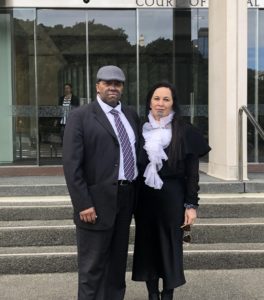
Yours has been a good journey, too. But it’s a complex one and there’ve been battles, along the way, with multinational companies over environmental issues — and now you have national politics on your agenda, after teaming up with John Tamihere to lead the Māori Party. And that election is less than four months away. So you have a fair bit on your plate.
The successes we’ve had so far in fighting for the environment and fighting against seabed mining have been critical. It’s a David and Goliath story where the rich extractors with bottomless pockets have been hoping to wear us down . . . wear down our small, grassroots community.
We have the whole community backing us but it still takes a huge toll. And it’s a huge weight on us knowing that we’re the first in Aotearoa to take on this fight. But those who know me are aware that I’m passionate about the environment. So there’ll be no giving up.
I feel the same about the work I do with the rangatahi. That includes an after-school, digital innovation programme that we set up. And also a holiday digital innovation programme. A part of that is a fellowship for a student each year to go to Stanford to learn to take risks and explore the opportunities, and then come back and apply that thinking to our problems — like finding ways to stop our wai being polluted.
They return not just with new ideas but also with the confidence to help solve our problems ourselves, instead of waiting for the answers to come from the government or from strangers who have no vested interest in our welfare.
So this work with the rangatahi is a great privilege and satisfaction for me. And it’s something I’ll probably keep doing until the day I die. Often mainstream systems tell our kids how poorly they’re doing rather than how amazing they are. Some come from pretty tough backgrounds — and I tell you, Dale, this has been the most satisfying, enriching, humbling, privileged bloody job I’ve ever had.
As for the politics, well, I’m not an obvious choice to have a go at that. I’m unknown, I’m grassroots, pretty ordinary really. Pretty much in my trackies most days. But these kids are the reason I get out there and make sure they’re not forgotten. They’re so worth fighting for.
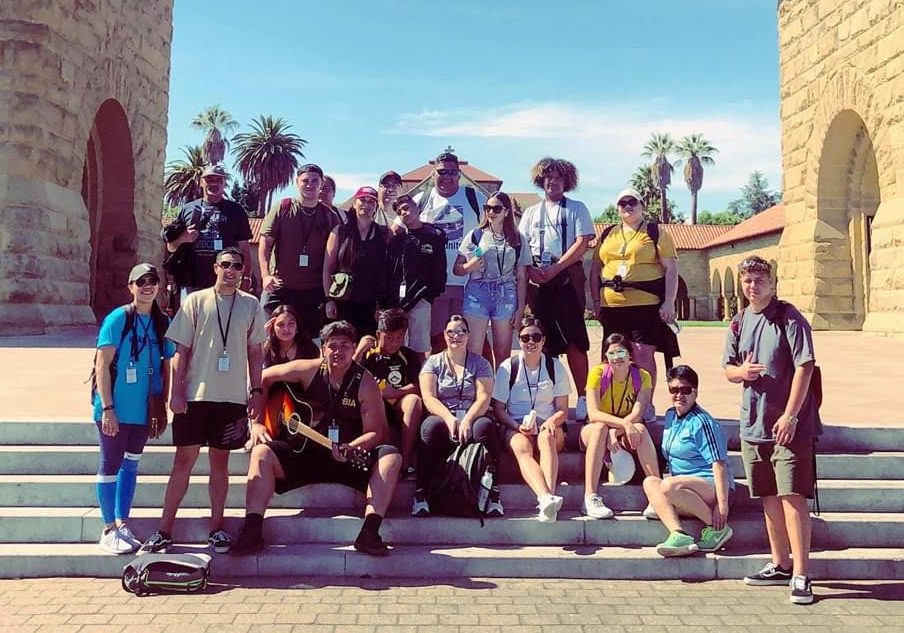
I see you’ve had a bit of an apprenticeship in local government.
Yeah. I spent some time on the South Taranaki District Council and as the deputy mayor. I did that because there was no Māori voice on issues affecting our awa, our whenua, our people.
For a start, we got an iwi liaison management position. And, because sewage was leaking into our awa — where our kids were swimming and our people were fishing — we got new sewage ponds, an infrastructure to protect our wai, and some new sporting facilities, to name a few.
I also went into iwi politics and that was because the Crown had landed us with legislation that had set off some of our marae against each other. And the next generation needed to step forward to remind us that we’re all related, to advance our kaupapa — and to bring about kotahitanga for us.
So my generation stepped up to do what our ancestors and kaumātua taught us. That’s to stand together and carry on the battle. And it’s the same kaupapa with the Māori Party. It’s to remind us that we should be united in bringing about equity and justice and partnership, the sharing of power, so that our rangatahi never have to feel prejudice against them or deal with systems that don’t allow them to succeed.
My approach is pretty simple. It’s mana motuhake. It’s being Māori for all Māori. That’s why I chose the Māori Party where we can be Māori and where we don’t have to make excuses or explain things to others who aren’t Māori.
And, on top of that, JT and I get on bloody well.
by Dale Husband
(This interview has been edited for length and clarity.)
